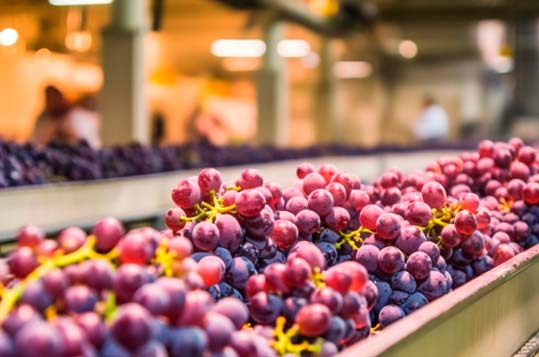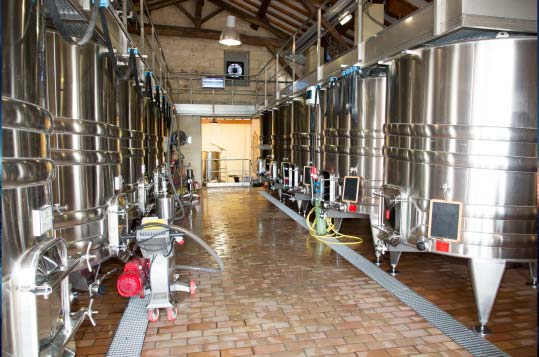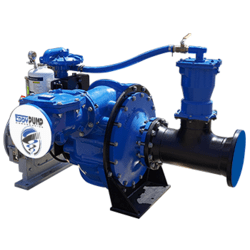Application of EDDY Pump in Wine Production



Application of Our Slurry Pumps in Wine Production

- Grape Must Transfer: The slurry transport pump transfers grape must, a mixture of crushed grapes, juice, skins, and seeds, from the crusher to the fermentation tanks. The high solids pump ensures efficient and gentle handling of the must while preventing excessive shear forces that could compromise the juice quality and aromatics.
- Pomace Removal: After fermentation, the remaining solids, known as pomace, must be removed from the fermentation tanks. The slurry transport pump effectively transports the pomace for further processing, such as distillation or disposal.
- Lees Removal: Lees are sediment and yeast residues that settle at the bottom of fermentation vessels. A heavy-duty slurry pump assists in removing the lees, promoting clarity in the wine and preventing off-flavors caused by extended contact with sediment.
- Waste Management: The high solids pump manages the waste generated during various stages of wine production. They help transport solid waste, such as grape skins and stems, from processing areas for proper disposal or recycling.
- Cleaning and Sanitation: A slurry transport pump aids in the cleaning and sanitation of equipment, tanks, and pipelines by effectively moving cleaning solutions and chemicals through the system to remove residues and ensure hygiene.
- Filtration and Clarification: Slurry pumps are utilized in filtration systems to move wine through filter media, helping separate suspended particles and unwanted solids, thus improving the wine’s clarity and quality.
- Cask and Barrel Handling: A slurry transport pump in larger wineries may transfer wine between casks and barrels, reducing manual handling and maintaining consistent quality during storage and aging.
CALL FOR SALES OR SUPPORT
If you need help with Pump Selection, Sales or Engineering Support
Call 619-345-5446

Application of EDDY Pump’s Hydraulic Dredging in Wine Production

- Vineyard Pond Maintenance: Some wineries have decorative ponds or reservoirs within their vineyards for aesthetic purposes or water storage. Hydraulic dredging equipment could remove sediment buildup from these ponds, ensuring water quality and preventing excessive nutrient accumulation that might affect the surrounding vineyard.
- Irrigation Canal Cleaning: In regions where irrigation canals or channels are used to supply water to vineyards, sediment and debris buildup can impede the flow and distribution of water. Dredge pump systems could clear these channels, ensuring consistent and efficient irrigation of the vines.
- Winery Drainage System: A hydraulic dredger might maintain drainage systems around the winery facilities. Keeping drainage channels clear of sediment and debris can help prevent flooding and waterlogging during heavy rains, protecting the infrastructure and the surrounding vineyard.
- Water Source Maintenance: Wineries that rely on natural water sources for their irrigation needs, such as rivers or streams, could use hydraulic dredging equipment to maintain the quality and flow of these water sources. Removing sediment and obstructions can ensure a steady and clean water supply for the vineyard.




